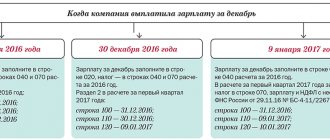Do I have to pay tax on an exchange agreement? Tax lawyer
Under an exchange agreement, I exchanged a plot of land that had belonged to me for about 2 years for a residential building. When filing a personal income tax return, tax officials said that I had to pay personal income tax on the value of the land plot, which was indicated in the exchange agreement. Is this legal?
Legal advice from a tax lawyer . Yes, you must pay tax. When resolving such disputes, judicial practice is based on the identical nature of contracts of exchange and purchase and sale.
According to subparagraph 5 of paragraph 1 of Article 208 of the Tax Code of the Russian Federation, income from sources in the Russian Federation includes, in particular, income from the sale of real estate located in the Russian Federation and owned by an individual.
In accordance with Article 218 of the Civil Code of the Russian Federation, ownership of property that has an owner can be acquired by another person on the basis of a purchase and sale agreement, exchange, donation or other transaction for the alienation of this property. The relations of the parties under an exchange agreement and a purchase and sale agreement have the same economic nature, which is confirmed by Article 567 of the Civil Code of the Russian Federation, according to which the rules of purchase and sale are applied to the exchange agreement. In this case, each party is recognized as the seller of the goods, which it undertakes to transfer, and the buyer of the goods, which it undertakes to accept in exchange.
According to paragraph 1 of Article 210 of the Tax Code of the Russian Federation, when determining the tax base for personal income tax, all income of the taxpayer received by him both in cash and in kind is taken into account.
Consequently, income received under an exchange agreement from the sale of real estate is also subject to personal income tax. The amount of income received under an agreement for the exchange of real estate is determined based on the value of such property, determined in the exchange agreement. Therefore, it is advisable to indicate the value of property based on its inventory value, information about which can be obtained from the technical inventory bureau.
When an exchange agreement is made in relation to real estate that has been owned for more than three years, no tax is paid.
The best tax lawyer in Moscow
www.advocatemoscow.ru
The exchange agreement does not exempt you from paying personal income tax
Question from Klerk.Ru reader Valera (Sterlitamak)
Please tell me what tax should I pay in this situation: half a year after entering into the right of inheritance, I EXCHANGED two one-room apartments for a private house? In the exchange agreement (not the sale and purchase) the cost of the apartments was indicated as 1,050,000 rubles and 900,000 rubles, and the cost of the house was 1,980,000. Additional payment of 30,000.
To do this, I sold the garage for 65,000 rubles. Is an exchange considered a sale? Or is it not taxed? Two apartments + garage = 2,015,000 rub. - house 1,980,000 = 35,000 rub. Here is my actual income. I beg you, tell me how much my tax should be?
The relations of the parties under the exchange agreement and the purchase and sale agreement have the same economic nature, which is confirmed by Art. 567 of the Civil Code of the Russian Federation, which establishes that the rules of purchase and sale apply to the exchange agreement. In this case, each party is recognized as the seller of the goods, which it undertakes to transfer, and the buyer of the goods, which it undertakes to accept in exchange.
In accordance with Art. 41 of the Tax Code of the Russian Federation, income is recognized as an economic benefit in monetary or in-kind form, taken into account if it is possible to evaluate it and to the extent that such benefit can be assessed, and determined, in particular, in accordance with Chapter 21 “Tax on personal income” of the Tax Code. code.
In accordance with paragraph 1 of Art. 210 of the Tax Code of the Russian Federation, when determining the tax base, all income of the taxpayer received by him both in cash and in kind is taken into account.
Based on subparagraph 2 of paragraph 1 of Article 223 of the Tax Code of the Russian Federation, the date of actual receipt of income in kind is the day of transfer of income.
In this case, the income in kind received when exchanging apartments for a house can be determined based on the cost of the house received in ownership (1,980,000 rubles) without taking into account the amount of additional payment (30,000 rubles), which is confirmed by Letter of the Ministry of Finance of the Russian Federation dated December 26, 2008 N 03-04-05-01/479. That is, your income received in kind will be 1,950,000 rubles.
At the same time, you have the right to receive a property tax deduction provided for in paragraphs. 1 clause 1 art. 220 of the Code, in an amount equal to the value of the exchanged apartments that were owned for less than three years, but not exceeding in total 1,000,000 rubles. Consequently, taxable income from the sale of apartments will be 950,000 rubles.
If the garage has been owned for less than three years, then the income from its sale can be reduced by the amount received from the sale not exceeding 250,000 rubles (clause 1, clause 1, article 220 of the Tax Code of the Russian Federation). That is, no taxable income arises. If the garage is owned for more than those years, the tax is not paid on the basis of clause 17.1 of Art. 217 Tax Code of the Russian Federation.
In addition, in accordance with paragraphs. 2 p. 1 art. 220 of the Tax Code of the Russian Federation, you also have the right to receive a property tax deduction related to the purchase of a residential building in the amount of actual expenses incurred, but not more than 2,000,000 rubles. (provided that this property tax deduction was not previously used!).
The provisions of paragraphs. 2 p. 1 art. 220 of the Tax Code of the Russian Federation provides that when purchasing a residential building, apartment, room or share(s) in them, a property tax deduction is provided to the taxpayer on the basis of a written application from the taxpayer, as well as payment documents confirming the fact of payment of funds by the taxpayer for expenses incurred (receipts for income orders, bank statements on the transfer of funds from the buyer's account to the seller's account, sales and cash receipts, acts on the purchase of materials from individuals indicating the address and passport details of the seller and other documents).
Tax authorities (see Letter of the Federal Tax Service of Russia dated 03.08.2009 N 3-5-04/ [email protected] , Letter of the Federal Tax Service of Russia for Moscow dated 30.12.2009 N 20-15/4/139525) explain that if the exchange of residential premises is made without additional payment, property deduction in accordance with paragraphs. 2 p. 1 art. 220 of the Tax Code of the Russian Federation is not provided, since the taxpayer does not have actual and documented expenses associated with the purchase of housing.
If the exchange is made with an additional payment, then to confirm the right to a property tax deduction, the buyer submits an exchange agreement and documents confirming ownership of the house, as well as payment documents confirming the fact of payment of funds (surcharge) under the exchange agreement.
In your case, the actual costs of purchasing a house amounted to 30,000 rubles. Claiming a property tax deduction in the amount of 30,000 rubles. for the costs of purchasing a residential building, you will reduce taxable income for 2010 (including from the sale of apartments - 950,000 rubles) by the specified amount.
Thus, depending on whether you use a deduction for the costs of purchasing a house or not, the amount of taxable income will be 920,000 rubles. (personal income tax 13% = 119,600 rubles) or 950,000 rubles. (Personal income tax 13% = RUB 123,500).
It’s very easy to get a personal consultation with Svetlana Skobeleva online - you need to fill out a special form . Several of the most interesting questions will be selected daily, the answers to which you can read on our website.
Rules for the exchange of land plots
The possibility of using a land plot as an object of paid and gratuitous transactions is regulated by the Civil Code of the Russian Federation and the Land Code of the Russian Federation. Only the owner can dispose of land; temporary land users (for example, tenants) are deprived of this right. It must be taken into account that any transaction with land plots is subject to mandatory registration with the Rosreestr service, since the plots are classified as real estate.
The key characteristics of land exchange are as follows:
- within the framework of this transaction, there is a mutual transfer of ownership of the object of exchange;
- land plots can be exchanged for similar objects, or for other property assets (residential and non-residential premises, vehicles, etc.);
- an exchange agreement may include a condition for the payment of monetary compensation by one of the parties if the exchanged objects are unequal in value.
For all objects of the exchange agreement, the parties must independently agree on cost characteristics. In relation to land plots, the price can be set based on the cadastral value or market prices for similar objects. As a rule, the value of the object or thing for which the land is exchanged is recognized as equivalent, which makes it possible to avoid additional payments under the contract.
Land can be the subject of exchange regardless of its intended purpose specified in the title documents. For the new owner, the legal regime of permitted land use is preserved, and its change is allowed only on the basis of a decision of the authority. You also need to take into account the following mandatory rules for the exchange of plots:
- after registering the transfer of ownership rights in the Rosreestr service, the encumbrances and restrictions previously established for the site (for example, public or private easement) remain valid;
- if a structure or building is located on the land, it is subject to simultaneous alienation;
- if part of the land plot is subject to exchange (for example, with shared ownership), it will be necessary to first offer it to other owners.
Thus, the exchange of land plots is similar in form to a civil purchase and sale transaction, since the transfer of ownership occurs on paid terms.
- Moscow and region:
+7-499-938-54-25 - St. Petersburg and region:
+7-812-467-37-54 - Federal:
+7-800-350-84-02
Board size
Unfortunately, the Tax Code does not establish the amount of tax for such a transaction as the exchange of real estate. There is no mention of this in the Civil Code.
By the way, you can find out the details of the transaction in Article 567 and subsequent norms of the Civil Code of the Russian Federation. But how then can a common man know what kind of monetary contributions to the state he can count on?
If we turn to the Civil Code, one of the articles contains the following definition.
Thus, barter is equivalent to the well-known purchase and sale agreement .
Many citizens will throw up their hands, because there is nothing similar in these procedures. Actually this is not true.
In a purchase and sale transaction, we can observe the presence of two parties - the seller's side , transferring ownership of the property in favor of another person, and the buyer's side , acquiring ownership for money.
There are also two parties to an exchange agreement, but each of them is automatically both a seller and a buyer . This means that these transactions can be compared almost equally.
The Tax Code in Article 217 establishes a tax of 13 percent of personal income tax on a purchase and sale transaction . Consequently, this figure is also relevant for barter transactions.
The procedure for exchanging land plots
Since land is classified as real estate, the Civil Code of the Russian Federation imposes two requirements on the form of the contract - it must be drawn up in the form of a written contract, after which it is subject to registration with the Rosreestr service. To exchange shares for a plot, the legislation provides an additional condition - in addition to the mandatory notification of other owners, such agreements must be certified through a notary office.
After agreeing on the essential and additional terms of the transaction, the parties must draw up a bilateral agreement. Its text should contain the following points:
- date and place of drawing up the contract;
- detailed information about the parties to the transaction - passport data for individuals, official attributes of enterprises;
- subject of the transaction - data about the land plot and object that are exchanged under the agreement;
- information about whether the parties have ownership rights to the objects under the agreement;
- cost characteristics of each transaction object;
- the amount and procedure for transferring the additional payment, if it is a condition of the contract;
- the procedure for the actual transfer of objects of exchange, as well as the registration of rights to them from new owners;
- conditions for maintaining restrictions and encumbrances on objects under an exchange agreement.
In some cases, making an exchange will be impossible without the consent of the person in whose favor the encumbrance is registered. For example, if a pledge is registered on a plot of land in favor of a credit institution, in order to exchange it it is necessary to obtain the consent of the bank or to repay the obligations under the loan agreement.
The procedure for transferring rights to objects under a transaction may vary significantly . If the plot is exchanged for other real estate (apartment, non-residential premises, etc.), registration with the Rosreestr service will be carried out simultaneously for both objects. If land is exchanged for a vehicle, it is registered as part of an independent procedure through the traffic police. If movable property is transferred in exchange for a plot, registration actions are carried out only in relation to the land (to transfer rights to movable property, it is enough to conclude an acceptance deed).
An important rule is regulated by Article 568 of the Civil Code of the Russian Federation - if the counterparties have not agreed on the cost characteristics of the plots in the contract, they are recognized as equivalent in price. This condition will be essential for the calculation of tax liabilities that arise for each party after registration of the agreement. It must be taken into account that underestimation of cost indicators currently has no legal meaning. After submitting declaration forms to the Federal Tax Service, tax inspectors are required to conduct a desk audit of the documents. If the market price is lower than the cadastral value, the second indicator will be used to calculate tax liabilities (if necessary, the amount of tax will be additionally charged).
A thorough study of the issue does not always guarantee a positive outcome.
.
On our website you can
get the most detailed consultation on your issue from our lawyers
for free in Moscow (
+7-499-938-54-25) and
St. Petersburg (
+7-812-467-37 -54).
Algorithm of actions for registering an agreement
In order for the transfer of rights under a land exchange agreement to be officially registered, the parties need to contact the Rosreestr service or the Multifunctional Center. When registering, counterparties must submit the following set of documents:
- application for registration actions;
- general civil passports for the parties to the transaction, or documents for legal entities;
- a notarized power of attorney for the representative, if the parties used this option for conducting the transaction;
- exchange agreement and transfer deeds;
- title documents for property assets - certificate of title, extract from the state register of the Unified State Register of Real Estate, vehicle registration certificate, etc.;
- boundary plan for the land, if the site has not previously undergone the cadastral registration procedure;
- payment order confirming payment of the state duty (in 2017, for citizens the state duty is 2,000 rubles, for enterprises - 22,000 rubles).
Depending on the type of application, registration actions will be completed within 7 to 12 days (if applying through the Multifunctional Center, registration will take two days longer). After completing the registration stage, the new owner of the land plot will receive an extract from the state register of the Unified State Register of Real Estate.
Registration of exchange agreements for a share of a plot is possible only after notarization of the transaction. To do this, the owner of the site must follow the following algorithm of actions:
- obtain a boundary plan for the share through a cadastral engineer;
- send other owners a notice of the conclusion of an exchange agreement with an offer to buy out the share with a preemptive right;
- If within a month there is no consent to the specified proposal, or a refusal is received, the agreement is submitted to the notary’s office for certification.
After the notary’s certification mark, further registration actions in Rosreestr will take place according to the general rules.
Tax obligations under an exchange agreement
Each of the parties to the exchange agreement simultaneously acts as a seller and a buyer in the transaction. Therefore, they are subject to general taxation requirements. If the subject of the exchange was a land plot and other real estate, tax obligations will have the following nuances:
- income received during the exchange will be taxed at a rate of 13%;
- to calculate tax liabilities, it takes into account the value of the site specified in the contract or the cadastral value;
- if the period of ownership of the plot exceeds three years, the obligation to pay tax does not arise;
- If the tenure period is less than three years, you can take advantage of a property deduction in the amount of one million rubles, or deduct the cost of land acquisition expenses from the tax base.
The purchaser of a land plot can also take advantage of tax preferences. The tax base can be reduced by two million rubles; the specified tax deduction must be calculated by the acquirer independently by submitting a declaration form to the Federal Tax Service Inspectorate in form 3-NDFL. This deduction is carried out at the expense of the amount of personal income tax withheld from the acquirer for previous reporting periods.
The specified tax benefits apply to participants in the exchange agreement, regardless of the legal status of the objects. In particular, if the owner of a car exchanged it for a plot of land, he will be able to receive a tax deduction based on the value of the plot determined in the terms of the agreement.
From the moment the rights are transferred to the new owner, he has an obligation to pay land tax. Land tax rates are approved by local authorities and are calculated based on the cadastral value of the site.
law03.ru
The concept of property deduction
When exchanging an apartment with an additional payment, do I need to pay tax? What is a tax deduction when exchanging an apartment with an additional payment? When exchanging apartments, if the owner has owned it for no more than three years, he has the right to receive a property deduction . This opportunity is provided for in Article 220 of the Tax Code.
However, the deduction applies to an amount not exceeding one million rubles . If the transaction amount is slightly higher, then only the previously indicated amount is subject to deduction.
Let's calculate the amount of tax deduction.
If the transaction amount is 3 million rubles, then 1 million rubles is the deduction amount. You shouldn't touch him.
But of the remaining 2 million, the parties proportionately pay a tax of 13 percent in half. In this case, the tax deduction can be applied only once .
Learn more about the possibility of obtaining a property deduction in this video:
Tax on the sale of land
Irina Irina
Verified by CIAN
Participant of the “I work honestly” program
You have owned the plot for sale for less than 3 years. This follows, for example, from the letter of the Ministry of Finance of the Russian Federation dated December 17, 2013 No. 03-04-07/55742: “In this regard, since when a land plot is divided, new objects of ownership arise, which are assigned new cadastral numbers, and this object ceases to exist “, the period of ownership of the land plots formed during such division for the purposes of calculating and paying personal income tax should be calculated from the date of registration of the newly formed land plots in the Unified State Register of Rights to Real Estate and Transactions with It.” Therefore, when selling a plot for 1.5 million rubles. the tax will be: 13% (1.5 million-1 million deduction) = 65 thousand rubles.
Thank you! Tell me, did they tell me that I need to look at the cadastral value and some coefficient of 0.7 and calculate the tax from them?
Verified by CIAN
Participant of the “I work honestly” program
The tax will be calculated on an amount not less than 70% (0.7) of the cadastral value. In your case, if the cadastral value of the plot being sold is higher than 2.142 million (1.5 million: 0.7), the tax will be more than 65 thousand rubles.
cadastral value of the part being sold is 2.5 million
You will actually pay the tax, since the division created two new objects (the ownership of which began its journey from the moment of division (entry in the unified state register)). You need to look at how much the plots are worth according to the cadastre and then calculate them. Don’t forget about the property tax deduction when selling in the amount of 1 million rubles (it is not taxed)
The cadastral value of the part being sold is 2.5 million, but what if I indicate 1 million in the contract?
Tax evasion is a CRIME.
Verified by CIAN
Participant of the “I work honestly” program
If you, before performing independent actions, would have asked how to do it, then the amount of tax would now be 0 rubles 00 kopecks.
Verified by CIAN
Participant of the “I work honestly” program
For any amount in the contract less than 70% of the cadastral value, you will pay tax on 70% of the cadastral value: 13% (2.5 million x 0.7-1 million deduction) = 97.5 thousand rubles.
Verified by CIAN
Participant of the “I work honestly” program
We discussed this issue in a different format (there is a part of the forum that is closed from display). So, during division, it is possible to prove in court an earlier date for calculating property. For an example of judicial practice, you can read the Determination of the Investigative Committee on administrative cases of the Supreme Court of the Russian Federation dated May 11, 2011 N 67-B11-2 (information about the document was provided by I.V. Korableva, for which special thanks to her). Type it into a search engine and you will find it.
Verified by CIAN
Participant of the “I work honestly” program
Gennady, I partly agree with you, if this plot were more expensive, it would make sense to fight with the tax office)
Verified by CIAN
Participant of the “I work honestly” program
Thanks for the link, Mikhail. I read it. I would immediately agree with the approach of the Supreme Court and in relation to plots obtained by division, that property is calculated from the first plot or, as was in the Determination of the Supreme Court, from the first premises. But our law is not precedent. Maybe someday this situation will be reflected in the law (Tax Code of the Russian Federation) or in the Resolution of the Supreme Court - a review of judicial practice, then it will be a different matter. For most situations, it will be cheaper to agree with the position of the Ministry of Finance.
Somehow the judicial prospects for proving the absence of taxes seem unprofitable to me. Firstly, you need a smart lawyer, and he is paid accordingly, and if several authorities go up to the supreme one, I think the game is not worth the candle. Secondly, the tax office, without waiting for a court decision, will transfer data for debt collection. Yes, it’s cheaper to calculate everything before the division and sale begins, and maybe after that sell the share to the buyer and after the transfer of the right to divide, or wait five years)
Sales tax from the cadastral value of the land. It is not yet applied in Krasnodar and, in my opinion, in the Krasnodar Territory. The property tax is still in effect for less than 5 years. But this is for now. So calculate the tax payment: from the sale amount minus 1 million * 13%
Where can I see whether or not sales tax based on the cadastral value is applied in the Krasnodar Territory?
Good afternoon, I recommend contacting your local tax office, preferably in writing, with a clearly formulated question: “Should I pay or not, and if so, how much?” Since the application of Tax legislation has undergone significant changes, in particular, the tenure period has increased from 3 to 5 years. But the point is that no one can do tax calculations better than the local tax office, and besides, you will have an official written answer, and if anything happens you can refer to it! You can make an appointment to provide free information to the tax office via the Internet! In advance to avoid standing in line. Another question is about the amount that should be indicated in the contract. Why do sellers often try to split the amount, to underestimate it, instead of including the tax amount in the price? This would save them from problems with the tax authorities in the future. In my opinion. We professionals must bring to the masses this approach to resolving the issue of tax at the stage of determining the price of an object at the initial stage of sale, at the time of exhibiting and at the time of bidding. I think every seller should simply take into account that he must pay tax on the amount received. Happy holiday everyone!
www.cian.ru
Personal income tax when exchanging apartments
I exchanged my apartment worth 3.5 million rubles. for an apartment worth 2.7 million rubles. with an additional payment of 800,000 rubles. I owned the apartment for less than three years. Before completing the transaction, I contacted the tax office, where they told me that the taxable base would be only the amount of the additional payment, that is, 800,000 rubles. But now tax authorities claim that an exchange agreement is equivalent to a purchase and sale agreement. Therefore, the tax base is 3.5 million rubles. minus a property deduction in the amount of 1 million rubles. How to calculate tax correctly?
A. Ignatiev, Serpukhov
Relations arising during the exchange of property are regulated by the provisions of Chapter 30 of the Civil Code of the Russian Federation. Article 567 of the Civil Code of the Russian Federation states that under an exchange agreement, each party undertakes to transfer one product into the ownership of the other party in exchange for another. The rules on purchase and sale are applied to the exchange agreement, if this does not contradict the rules of Chapter 30 of the Civil Code of the Russian Federation and the essence of the exchange. In this case, each party is recognized as the seller of the goods that it undertakes to transfer, and the buyer of the goods that it accepts in exchange. That is, when exchanging apartments, each of them is considered as a commodity being sold. And this product is paid for not with money, but with the provision of other property in kind. When, in accordance with an exchange agreement, the goods exchanged are recognized as unequal, the party obligated to transfer the goods, the price of which is lower than the price of the goods provided in exchange, must pay the difference in prices (clause 2 of Article 568 of the Civil Code of the Russian Federation).
Determining the tax base
The agreed position of the Ministry of Finance of Russia and tax authorities on the issue of taxation of income received under an exchange agreement is expressed in the letter of the Ministry of Finance of Russia dated September 19, 2012 No. 03-04-08/4-310 (sent out to lower tax authorities for use in their work by letter of the Federal Tax Service of Russia dated November 27. 2012 No. ED-4-3/ and posted on the official website of the Federal Tax Service of Russia in the heading “Explanations of the Federal Tax Service, mandatory for application by tax authorities”). It is as follows. When determining the tax base for personal income tax, all income of the taxpayer received both in cash and in kind is taken into account (clause 1 of Article 210 of the Tax Code of the Russian Federation). Based on the provisions of paragraph 3 of Art. 38 and paragraph 1 of Art. 39 of the Tax Code of the Russian Federation, the transfer of one product in exchange for another is a sale. Since when making an exchange, both parties to the contract transfer one product in exchange for another, each party sells its own product. Accordingly, for tax purposes, barter should be considered as two counter transactions for the sale of goods within the framework of one transaction with payment in kind.
The income received by each party to the exchange agreement is determined based on the value of the property being exchanged. If, during the exchange of property, one of the parties received payment for the difference in the prices of the goods exchanged, the amount of payment received in cash is also included in the income taken into account when determining the tax base.
In your case, you received income in kind in the form of an apartment worth 2.7 million rubles. and income in cash in the form of an additional payment in the amount of 800,000 rubles. Thus, the tax base in your case will be 3.5 million rubles.
Property deduction when selling a home
When selling an apartment that has been owned for less than three years, its owner has the right to a property deduction (subclause 1, paragraph 1, Article 220 of the Tax Code of the Russian Federation) in the amount of income received from the sale of the apartment, but not more than 1 million rubles. (Subclause 1, Clause 2, Article 220 of the Tax Code of the Russian Federation). Financial department specialists believe that this deduction is also applicable when exchanging property (letter dated 04/08/2014 No. 03-04-RZ/15807).
Instead of applying a deduction, a taxpayer can reduce the amount of his taxable income by the amount of expenses actually incurred and documented by him related to the acquisition of sold property (subclause 2, clause 2, article 220 of the Tax Code of the Russian Federation). In the already mentioned letter of the Ministry of Finance of Russia dated September 19, 2012 No. 03-04-08/4-310, officials noted that in this case, documented expenses for the acquisition of the exchanged property are taken into account as expenses when making an exchange. The same is stated in the letter of the Ministry of Finance of Russia dated 04/08/2014 No. 03-04-RZ/15807.
The courts support this position. Thus, the Presidium of the Tula Regional Court of the Tula Region, in a resolution dated October 22, 2013 in case No. 44g-17/2013, indicated that when selling an apartment under an exchange agreement, the seller receives income in kind in the form of the cost of the apartment received and income in cash in the amount received surcharges. At the same time, he has the right to take advantage of the property deduction when selling housing, provided for in subsection. 1 clause 1 art. 220 Tax Code of the Russian Federation.
So, you have two ways to reduce the tax base for personal income tax:
1) reduce the income received in the amount of 3.5 million rubles. for a property deduction in the amount of 1 million rubles, while the amount of income on which tax must be paid will be 2.5 million rubles;
2) reduce the income received in the amount of 3.5 million rubles. for expenses associated with the acquisition of an apartment given in exchange, while the amount of income on which tax must be paid will depend on the amount of such expenses. For example, if you bought an apartment for the same 3.5 million rubles, the tax base will be zero.
Thus, use a deduction of 1 million rubles. It makes sense only if you do not have documentary evidence of the expenses incurred when purchasing the sold (exchanged) apartment or if these expenses are less than 1 million rubles.
Property deduction when purchasing housing
When exchanging apartments, you not only sell housing, but also purchase a new one. The Tax Code provides for a property deduction in the amount of actual expenses incurred for the acquisition of residential buildings, apartments, rooms or a share(s) in them on the territory of the Russian Federation (subclause 1, clause 1, Article 220 of the Tax Code of the Russian Federation), but not more than 2 million rubles. (Subclause 1, Clause 3, Article 220 of the Tax Code of the Russian Federation). You can use this deduction only once (Clause 11, Article 220 of the Tax Code of the Russian Federation). Moreover, from January 1, 2014, the following rule applies: if the deduction is not fully used, its balance does not disappear and can be taken into account when purchasing other housing or land in the future.
Both the Russian Ministry of Finance and tax authorities believe that participants in the exchange agreement can also take advantage of this deduction. Their agreed position on this matter is expressed in the letter of the Ministry of Finance of Russia dated August 19, 2011 No. 03-04-08/4-150 (sent out to lower tax authorities for use in their work by letter of the Federal Tax Service of Russia dated September 1, 2011 No. ED-4-3/ and posted on the official website of the Federal Tax Service of Russia in the section “Explanations of the Federal Tax Service, mandatory for use by tax authorities”).
Officials explained that the norms of the Tax Code do not provide restrictions on the method of payment for purchased housing (cash or other property under an exchange agreement) for the purposes of applying this property deduction. There is no such restriction in the list of cases when the property deduction is not applied. Such a restriction would violate the taxpayer’s rights to receive a property tax deduction, depending on the form of payment. The amount of expenses for purchasing housing on the basis of an exchange agreement is determined in accordance with the provisions of Art. 568 of the Civil Code of the Russian Federation based on the value of the property transferred under this agreement in payment for the cost of the purchased housing, as well as the costs of transfer (acceptance of property) and payment of the difference in prices, if the exchanged property is recognized as unequal.
Thus, in addition to the first or second method of reducing the tax base for personal income tax described above, you can use the deduction for the purchase of housing (if you have never used it before). For example, you decided to use the first method (apply a deduction of 1 million rubles to the income received). Then you can reduce the remaining amount of income (2.5 million rubles) by a deduction for the purchase of housing in the amount of 2 million rubles. As a result, the tax base will be only 500,000 rubles.
www.eg-online.ru
This is interesting:
- Federal constitutional law on the constitutional court consultant Interview with the Chairman of the Constitutional Court of the Russian Federation Part IV.About the Federal Law “On the CONSTITUTIONAL COURT OF THE RUSSIAN FEDERATION” On June 15, 2009, an interview took place with the Chairman of the Constitutional Court of the Russian Federation V.D. Zorkin. The interview was organized […]
- The role of a lawyer in criminal proceedings Mandatory participation of a defense lawyer in cases of minors The guarantee of the constitutional right of a minor to defense is the mandatory participation of a defense lawyer in criminal proceedings if the suspect (accused) is […]
- Documents for early retirement of a teacher WHAT IS IMPORTANT TO KNOW ABOUT THE NEW PENSION LAW Subscription to news A letter to confirm your subscription has been sent to the e-mail you specified. September 28, 2021 Teachers have the right to receive an old-age insurance pension earlier […]
- Article 158 of the Criminal Code of the Russian Federation 4 Art. 158 part 4 - how many years does my husband face? If the court decides that your husband is the organizer of the crime, he will receive up to 10 years in prison. In accordance with Art. 61 of the Criminal Code of the Russian Federation the presence of young children of the perpetrator is […]
- Salaries of court staff Salaries of court staff. A bill on the salaries of court employees. What is the salary of judicial employees? The question is quite interesting and multifaceted. Currently, there is an opinion in society that court employees [...]
- Euro selection rules Will Buffon play at the 2018 World Cup? 5 main questions of the qualifying playoffs Northern Ireland - Switzerland Peru - New Zealand The first play-offs of the intercontinental play-offs will take place on November 6, the return matches on November 14. The European Games will take place from [...]
Purchasing an apartment under an exchange agreement. Right to property tax deduction
(Letter of the Ministry of Finance of the Russian Federation dated August 19, 2011 No. 03-04-08/4-150)
When purchasing housing under an exchange agreement
the taxpayer
has the right to take advantage of the property tax deduction
provided for
in paragraphs.
2 p. 1 art. 220 of the Tax Code of the Russian Federation ,
on a general basis
.
This conclusion is contained in the commented letter signed by the deputy. Minister of Finance of the Russian Federation.
The Federal Tax Service of the Russian Federation and the Ministry of Finance of the Russian Federation have been unable to develop a common position on this issue for several years.
Thus, in the letter of the Federal Tax Service of the Russian Federation dated May 5, 2010 No. ШС-37-3/ [email protected] it was stated that a property tax deduction can be provided to an individual, as the buyer of an apartment, only for expenses incurred in cash, confirmed payment documents
, that is,
in the amount of the additional payment
received under the exchange agreement in exchange for the apartment that previously belonged to him.
Tax authorities are guided by the norm of paragraphs. 2 p. 1 art. 220 Tax Code of the Russian Federation
, according to which a property tax deduction for the purchase of an apartment is provided to the taxpayer
on the basis of a written application from the taxpayer, as well as payment documents
drawn up in the prescribed manner and confirming the fact of payment of funds by the taxpayer for expenses incurred (receipts for receipt orders, bank statements about the transfer of funds from the account buyer to the seller's account, sales and cash receipts, acts on the purchase of materials from individuals indicating the address and passport details of the seller and other documents).
That is, according to the Federal Tax Service, there are no payment documents
-
no deduction.
P.p. 2 p. 1 art. 220 Tax Code of the Russian Federation
it is provided that the taxpayer has the right to receive a property tax deduction in the amount of expenses actually incurred by the taxpayer for new construction or acquisition on the territory of the Russian Federation of a residential house, apartment, room or share(s) in them, land plots provided for individual housing construction, and land plots on which the purchased residential buildings are located, or shares (shares) in them.
In letter dated December 26, 2008 No. 03-04-05-01/479, the financial department addressed the norms of the Civil Code of the Russian Federation.
In accordance with the provisions of Art.
567 of the Civil Code of the Russian Federation , under an exchange agreement
, each party undertakes to transfer one product into the ownership of the other party in exchange for another.
The rules of purchase and sale apply to the exchange agreement. In this case, each party is recognized as the seller of the goods
which she undertakes to transfer,
and the buyer of the goods
which she undertakes to accept in exchange.
Art. 568 Civil Code of the Russian Federation
it is established that unless otherwise follows from the exchange agreement,
the goods to be exchanged are assumed to be of equal value
, and the costs of their transfer and acceptance are borne in each case by the party that bears the corresponding obligations.
In the case when, in accordance with the barter agreement, the goods exchanged are recognized as unequal
, the party obligated to transfer the goods, the price of which is lower than the price of the goods provided in exchange, must
pay the difference
in prices immediately before or after fulfilling its obligation to transfer the goods, unless a different payment procedure is provided for in the contract.
From which the conclusion follows: since under the exchange agreement the taxpayer is simultaneously both the seller and the buyer
real estate, then he has the right to receive property tax deductions provided for
in subparagraphs 1 and 2 of paragraph 1 of Art.
220 Tax Code of the Russian Federation .
In the commented letter, the Ministry of Finance is already examining the norms of the Tax Code of the Russian Federation.
P.p. 2 p. 1 art. 220 Tax Code of the Russian Federation
, financiers note,
does not contain restrictions on the method of payment for the purchased housing
(cash or other property under an exchange agreement).
No such restriction is contained in paragraph. 26 p.p. 2 p. 1 art. 220 Tax Code of the Russian Federation
, establishing a list of cases when this property tax deduction does not apply.
Such a restriction would violate the taxpayer’s rights to receive a property tax deduction, depending on the form of payment.
In accordance with paragraphs
2 p. 1 art. 220 of the Tax Code of the Russian Federation, to confirm the right to a property tax deduction, the taxpayer submits
:
– during the construction or purchase of a residential building
(including unfinished construction) or share(s) in it - documents confirming ownership of a residential building or share(s) in it;
– when purchasing an apartment
, rooms, shares (shares) in them or rights to an apartment, a room in a house under construction - an agreement on the acquisition of an apartment, room, share (shares) in them or rights to an apartment, a room in a house under construction, an act of transfer of an apartment, room, share (shares) in them to the taxpayer or documents confirming ownership of an apartment, room or share (shares) in them;
– when purchasing land plots
provided for individual housing construction, and land plots on which the purchased residential buildings are located, or shares (shares) in them - documents confirming ownership of the land plot or share (shares) in it, and documents confirming ownership of the residential house or share(s) in it.
Thus, the basis for confirming the right to receive a property tax deduction
when purchasing housing,
there is a contract
for its purchase, as well as
documents confirming the ownership
of housing, or a transfer act, that is, it is also
not associated with the method of payment for the purchased housing
.
The requirement to submit payment documents drawn up in the prescribed manner applies to cases of payment for the cost of purchased housing in cash and is associated with the need in these cases to confirm the fact of expenses for its acquisition and their amount.
When purchasing housing under an exchange agreement, the fact of transfer of property
(expenses)
is confirmed by other documents
, and
the amount of expenses
for the purchase of housing is determined in accordance with the provisions
of Art.
568 of the Civil Code of the Russian Federation based on the value of the property transferred under this agreement in payment for the cost of the purchased housing, as well as the costs of transfer (acceptance of property)
and payment of the difference in prices
, if the exchanged property is recognized as unequal.
Therefore, when purchasing housing under an exchange agreement, the taxpayer has the right to take advantage of the property tax deduction
, provided for
in paragraphs.
2 p. 1 art. 220 of the Tax Code of the Russian Federation , on a general basis.
At the same time, this letter from the Ministry of Finance of the Russian Federation was communicated to the territorial tax authorities
.
This is a very important point.
According to paragraphs. 5 p. 1 art. 32 of the Tax Code of the Russian Federation, tax authorities are obliged to follow
written
explanations of the Ministry of Finance of the Russian Federation
on the application of the legislation of the Russian Federation on taxes and fees.
In addition, Federal Law of the Russian Federation dated July 18, 2011 No. 227-FZ, clause 1, art. 34.2 Tax Code of the Russian Federation
supplemented
by the authority of the Ministry of Finance to provide tax authorities with explanations
on the application of legislation on taxes and fees.
This norm comes into force on January 1, 2012
.
Which gives us hope that the tax authorities will eventually end the confrontation with the Ministry of Finance on this issue.








